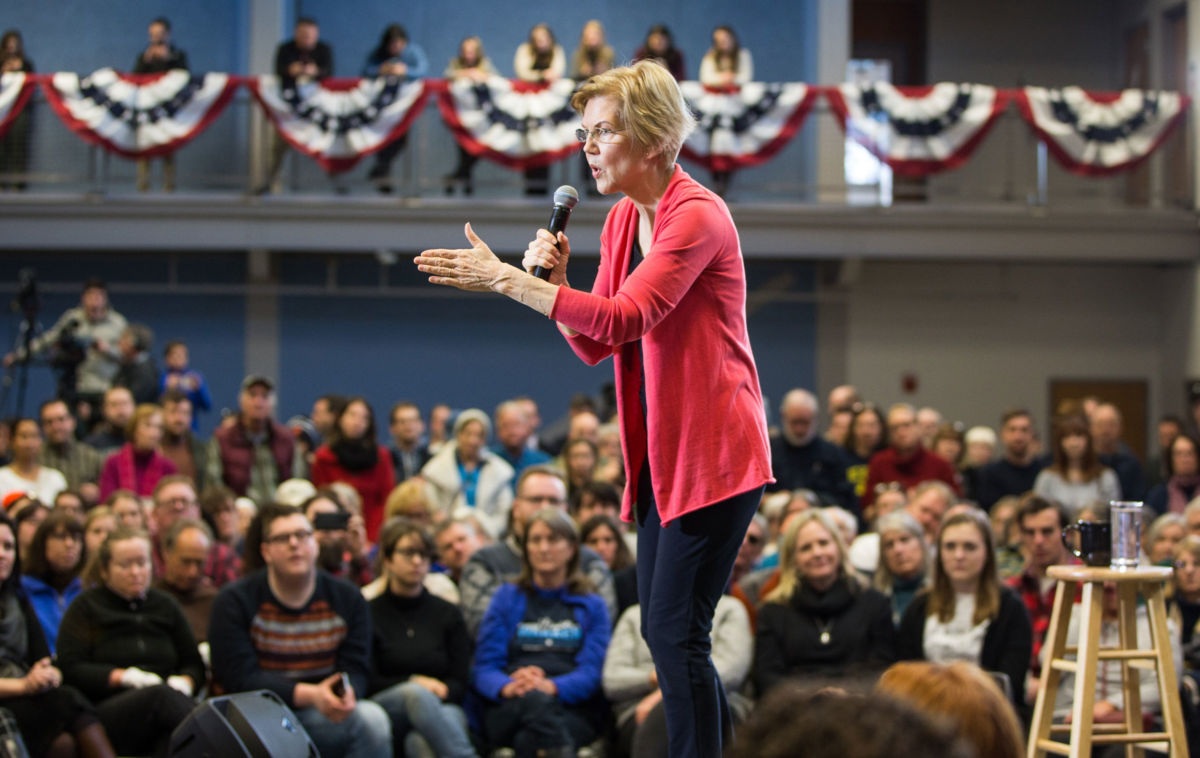Sen. Elizabeth Warren was the first and Rep. Tulsi Gabbard came soon after. Now we have Sen. Kirsten Gillibrand and Sen. Kamala Harris announcing, with Sen. Amy Klobuchar rumored to be not far behind. Are we following up a ‘women’s wave’ election with a women’s wave primary — and can that be the first step towards finally getting a woman in the White House?
With California Senator Kamala Harris the latest to make her candidacy official, we now have four women in the candidate pool for 2020 — and more potentially on the way. That has advocacy groups — especially those who lean towards or only endorse female candidates — extremely excited about the new trend.
And unlike 2016 when left-leaning political groups chose an early favorite, this time they aren’t at all eager to narrow the pool down early. According to the Associated Press:
NARAL Pro-Choice America’s president, Ilyse Hogue, said the abortion rights group has made no firm decision about whether to eventually back one or more Democratic hopefuls and that “we see it as a plus, not a minus, if we haven’t endorsed by the Iowa caucus” because it means that members see multiple candidates supporting their goals.
The number of women announcing presidential intentions is already historic, according to CNN — but will that make it easier or harder for a woman to actually become the eventual nominee? It’s difficult to say — especially with many of them currently low in the polls among potential Democratic primary voters. But much of that uncertainty could go away once the candidates are better known. After all, the electorate is enthusiastic about voting for women right now.
Harry Enten writes:
Women candidates dominated in 2016 and 2018 Democratic primaries. Hillary Clinton won the 2016 Democratic presidential nomination. Over 50% of women who ran in Democratic House primaries won in 2018. In fact, more women were nominated in Democratic House primaries than ever before.
It’s not just that women are winning. It seems that they are winning in part because Democratic voters want to vote for women. A CBS News poll taken in 2015 found that when Clinton voters were asked during the primary to give their most important reason for backing her, the second most popular answer was “it’s time for a woman president.” A FiveThirtyEight analysis found that even controlling for other factors, being a woman was one of the best indicators of whether a candidate won a 2018 congressional Democratic primary.
Ironically, despite an overwhelming number of female candidates to choose from, Democrats seem alarmingly inconsistent when it comes to recognizing why a woman should be the next nominee. And that’s troubling if Democrats hope to defeat President Donald Trump during the 2020 race.
According to a new poll commissioned by The Hill, only a little more than half of Democratic voters said it would be important to have a woman at the top of the ticket — either as president or vice president — and just 27 percent said it was important for a woman to be the presidential nominee.
That number drops even lower when considering all voters. The Hill reports:
Women were more interested in seeing a female nominee, but a majority did not consider it essential. Fifty-nine percent of them said it wouldn’t be important for the party to choose a woman for president or vice president, while 41 percent said it would be. Sixty-eight percent of male voters said it would not be important to them for Democrats to have a woman on their presidential ticket. Thirty-two percent said it would be valuable to them to see a woman as the party’s presidential or vice presidential pick.
On the bright side, with so many women in the running, there’s a very strong possibility that a woman can get the nomination — regardless of whether a person sees gender equity to be an important factor in picking a candidate. And if that happens, maybe we can finally get a woman into the White House after all.
